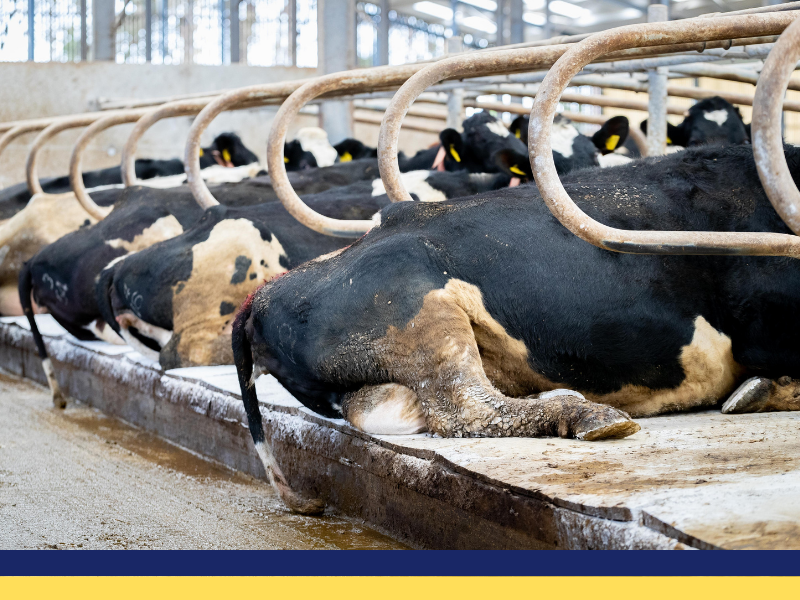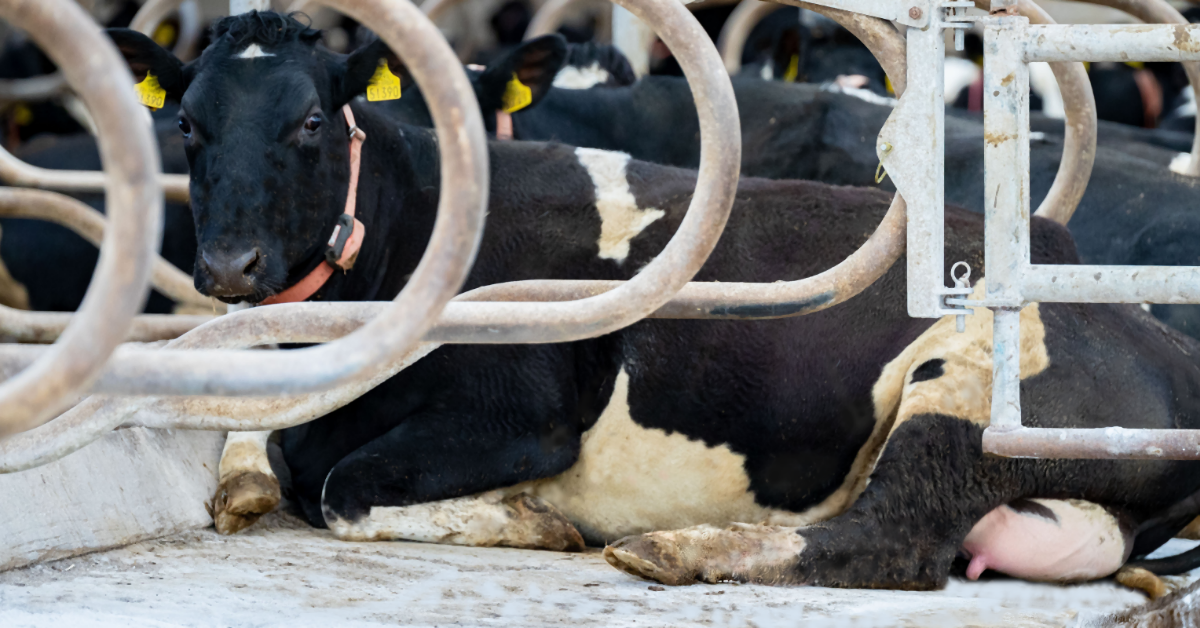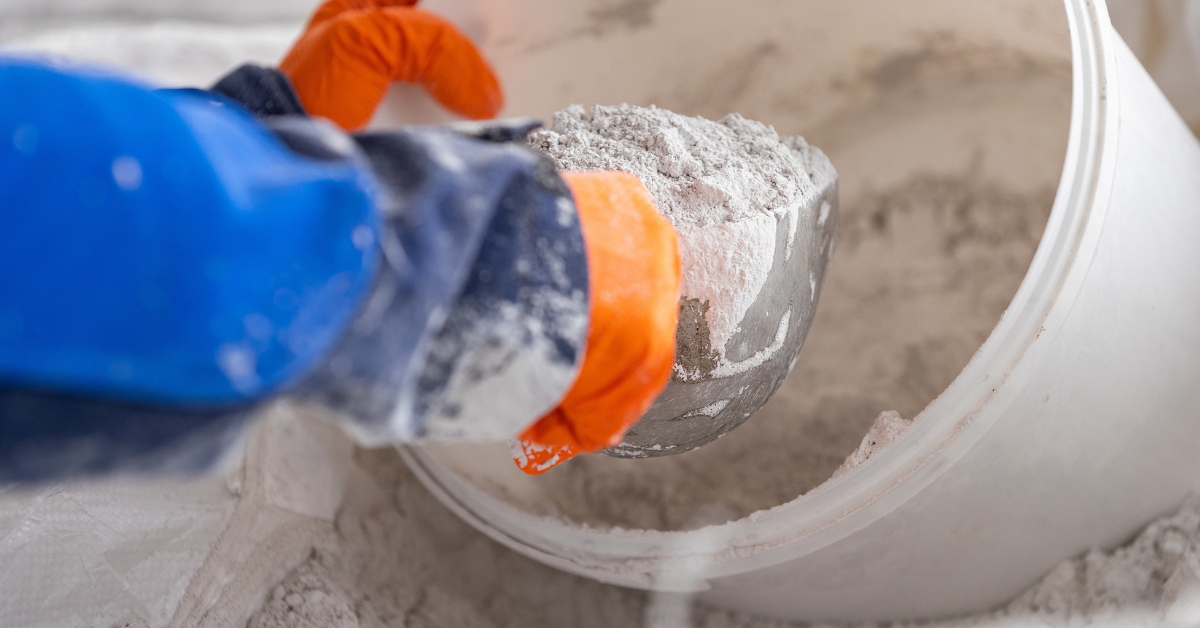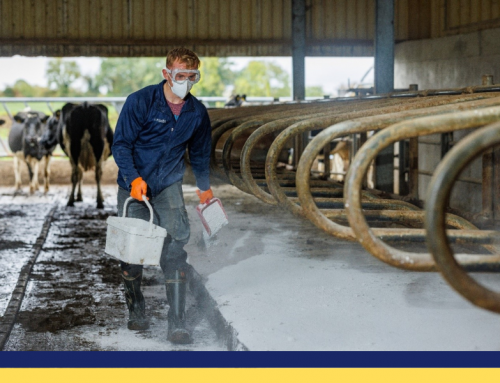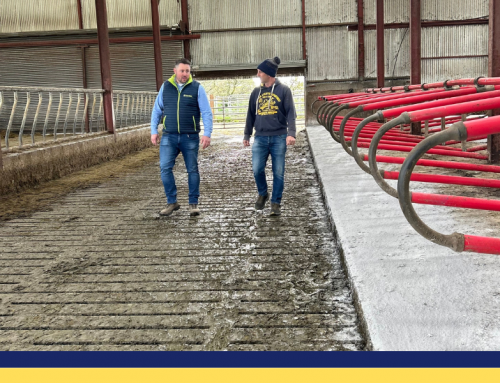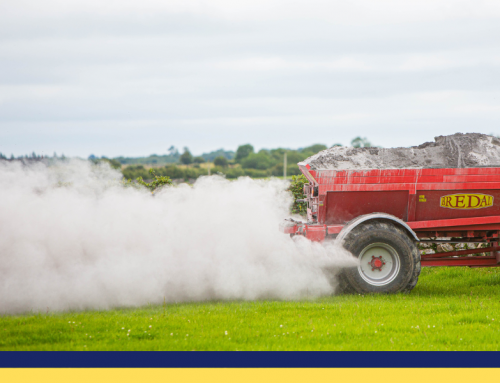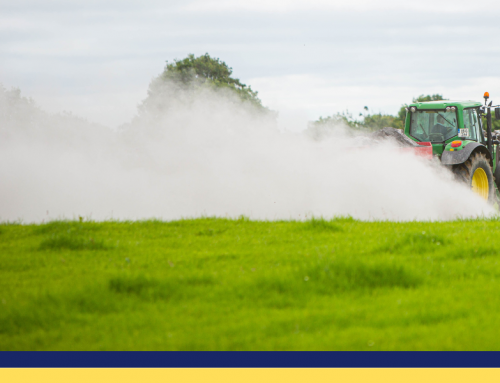As the rainfall increases, temperatures decrease, and grass growth slows, cows will be soon heading indoors. Keeping cows’ udders clean is of vital importance to reducing the risk of infection, so it is critical to have your cubicles winter ready and disinfected.
Implications of unhygienic cubicles
Scraping and liming cubicles daily can reduce the risk of infection. According to Jack Kennedy from the Irish Farmers Journal, cows teat canals can be open for 2-3 hours per day while they are still lactating. As cows approach the point of calving, they are particularly susceptible to infection as many cows leak milk for a few days prior to calving. The most common type of mastitis associated with housing in environmental mastitis is caused by bacteria such as E.coli and Strep Uberis.
Most cases of environmental mastitis are seen in the period before calving when a cow’s immune system is suppressed. In addition to the build-up of faeces, urine and even leaked milk, the cow is transmitting her heat onto the cubicle, making it the perfect environment for bacteria to live and multiply.
Prevention of environmental mastitis involves minimising levels of faeces and mud in the cubicle. Using lime as both a physical barrier and to increase the pH to inhibit the growth of bacteria is an effective measure.
While cows are still lactating, hygiene in the cubicle shed is key.
Best practice for liming cubicles
Before the housed period, inspect cubicles and assess if any repair or replacements of broken or loose cubicles and mats are required. Ensure scrapers are operating correctly in the shed.
The cleaner the housing facilities, the less likely bacteria will enter the teat canal. Cubicle beds should be cleaned and limed twice a day and it is recommended to run scrapers 6 to 8 times per day to reduce the volume of dung being brought onto the cubicle bed. As a general guide, apply 300g – 500g per cubicle per day, however usage rates can vary widely across dairy farms.
Hydrated cubicle lime is recommended as a cubicle disinfectant as its pH of 12.4 is above the tolerance threshold for streptococcal and staphylococcal bacteria, which are two of the most common causes of mastitis. Cows teats can be sensitive to the hydrated lime so a cautious approach to introducing the stronger hydrated lime blends is recommended.
Any type of cubicle lime can be damaging to your health, therefore it is essential to follow the below guidelines:
- Wear a pair of safety goggles and a face mask when spreading it to avoid lime getting into your eyes and inhaling it.
- Milking gloves will protect your hands and help avoid the lime coming into contact with your skin.
- Use a scoop or a handheld container to lime the cubicles.
As a general guide, apply 300g – 500g per cubicle per day
Why choose Bennettsbridge Limestone?
Bennettsbridge Limestone’s cubicle lime is a unique disinfectant product, that combines all the antibacterial benefits of hydrated lime in a mild super absorbent blend which will inhibit the growth of bacteria.
It is formulated using hydrated lime and very fine limestone powder. The lime is finely ground to maximise absorption and surface coverage, all while ensuring a dry, clean and comfortable environment for cows.
Bennettsbridge Limestone offers a full range of cubicle lime blends, available in 1 tonne bags. The stronger the hydrated lime blends, the longer it will sustain pH levels of treated areas for lasting animal protection.
Bennettsbridge Cubicle Lime Range:
- 15% Hydrated Lime Blend
- 30% Hydrated Lime Blend
- 50% Hydrated Lime Blend
- Superfine Regular Lime
For more information:
Bennettsbridge Limestone offer a nationwide delivery service. For more information on cubicle lime or to place your order, contact us today.
Like us on Facebook
Follow us on Twitter

